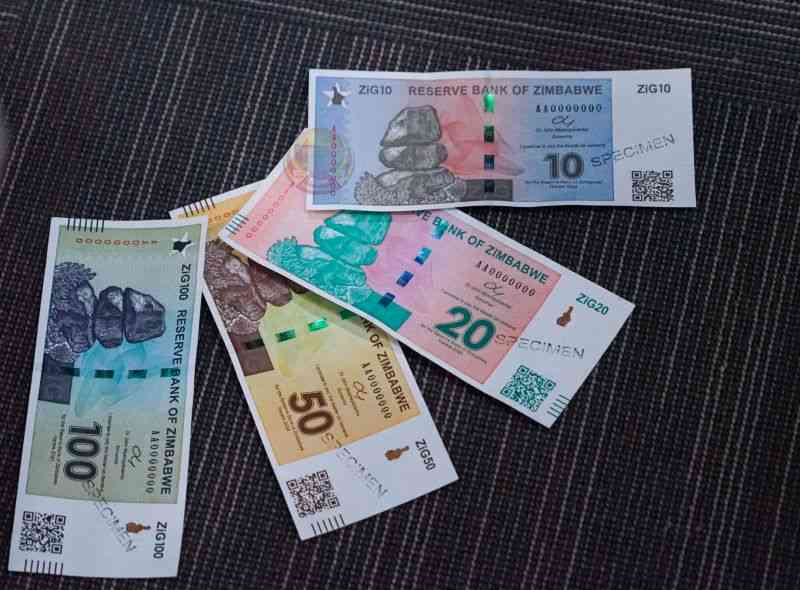
WE are only in the first three weeks of the new year and things seem to be falling apart in our beloved country. For once, there seems to be consensus that something is not holding things together. Urgent solutions are required to stabilise our country. Nothing is looking promising at the moment and the new dispensation’s approach to the situation is far from reassuring. Zimbabwe is bleeding!
Develop me: Tapiwa Gomo
It would be dishonest to say we did not see this coming. Those in ruling government, in the opposition and the general citizens are guilty of ignoring advice at some point along the course of the past half a decade. It’s a culmination of the accumulation of years of mistakes.
Before the 2013 elections, we were advised not to go for elections until political reforms were implemented. Sadc was on our side, as the curators of the Government of National Unity, but the opposition ignored the advice and allowed Zanu PF to outmanoeuvre them through the Jealous Mawarire Constitutional Court case. The outcome of those elections eliminated the opposition from the government, marking the end of a growing glimpse of transparency and accountability in the system.
A stabilising economy then went into another tailspin. Before the November 2016 release of the bond notes, we were cautioned severally by different actors, activists, civil society organisations, technocrats and economists of the impending dangers of this ‘silhouette’ type of money. And again, this advice fell on deaf ears of the monetary authorities. Some even offered their heads on the block if the bond failed. And here we are today crying foul while no head has gone on the block. What insincerity!
Tendai Biti is on record pointing out that the industry that would be hardest hit by the bond note is the fuel supply system. Fuel is the baseline for everything economic. It took long for his views to be vindicated because of the Queen Bee arrangement, that both monopolised the industry and manipulated the foreign currency supply system. Once the Queen Bee situation was exposed last year, it was a matter of time before all hell broke loose and rightly so the fuel situation reached its crescendo this January. It is not only that. The nation was left confused as to the exchange rate after the fuel hike.
In November 2017 as the coup unfolded, we celebrated the departure of former President Robert Mugabe against resounding advice that what was vacating office was just an individual and not the system. The system remained intact and rejuvenated. We were elated but today it has turned out that the Mugabe regime was less violent than what we are experiencing today. Two major waves of armed violence hit us in less than six months. Do we need another commission of inquiry into this wave? That would be folly on our part. Political reforms would have cured this, but we missed that bus in 2013.
While we cannot entirely blame ourselves as the system is both autocratic and sly, but we are indeed paying the price of some of our past mistakes. We are easily excitable. We celebrate too soon. Elections is a barren process that has never changed things in Zimbabwe. The country was won through war and the genuine new republic will possibly be won through reforms. Let’s do reforms before elections and see how it goes.
- Chamisa under fire over US$120K donation
- Mavhunga puts DeMbare into Chibuku quarterfinals
- Pension funds bet on Cabora Bassa oilfields
- Councils defy govt fire tender directive
Keep Reading
The current situation is killing the imagination of the current and future generations. My teenage son does not know a better Zimbabwe, so are many of his generation. With that, the appetite to do better is impaired. For now, it is the real suffering that confronts them. Because we made wrong decisions and choices against advice. The economy is regressing. Unemployment is rising and with the recent fuel prices hikes, the cost of living is profoundly eroding the income of those few who remain employed or still have an income. The little that remains is shared among friends, relative and neighbours and not anymore for investment. The fight for scarce basic resources will escalate. It is survival of the fittest. And hope is lost.
Predictability and stability have flown out of the window. Investors are not attracted by situations where guns are used to address problems, neither will they be lured by an environment that is characterised by market distortions. Unless things improve massively, it may take time to lure foreign investors. We will be on our own for some time.
But that is not the only problem. The few local investors in the country are also in a fix and a big quandary. Money in their hand is being eroded, while their businesses are threatened by violence and instability from those who are hungry. We are creating an unsafe environment for ourselves. Add the business losses incurred due to the Internet shutdowns in a world where most transactions are done online, the economic regression is massive and will take time to recover and all that in the name of preserving political power.
The nation is in pain and angry. Things are not balancing. Industrial action is the order of the day and the authorities respond by deploying armed personnel to deal with hungry, angry and pained citizens. That is how unfair our world is. While the situation may seem contained in the meantime, a hungry nation is never a source of national stability. The youth will be forced to go out and look for food. Criminality and looting will erupt and disrupt whatever remains as business. They will choose to die of the bullet than hunger. But why are we doing this to ourselves?
Tapiwa Gomo is a development consultant based in Pretoria, South Africa











